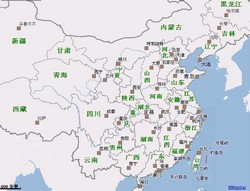In chinese some words are made up of the same couple of chinese character but in the reverse order, their meaning are different. For instance :
有一些中文汉词用同样的两汉字(互反向),它们的意思不一样。
| 合适 | héshì | convenable | 适合 | shìhé | convenir |
| 人家 | rénjiā | les autres | 家人 | jiārén | la famille |
| 故事 | gùshì | histoire | 事故 | shìgù | accident |
| 欢喜 | huānxǐ | joyeux | 喜欢 | xǐhuan | aimer |
| 意愿 | yìyuàn | désir | 愿意 | yuànyì | vouloir |
| 网上 | wǎngshàng | sur le net | 上网 | shàngwǎng | surfer |
| 恋爱 | liàn'ài | aimer | 爱恋 | àiliàn | être amoureux |
| 回来 | huílái | revenir | 来回 | láihuí | retour |
| 语法 | yǔfǎ | grammaire | 法语 | fǎyǔ | français |
| 情感 | qínggǎn | passion | 感情 | gǎnqíng | émotion |
| 工人 | gōngrén | ouvrier | 人工 | réngōng | manpower |
| 债权人 | zhaìquánrén | créditeur | 人权 | rénquán | droit de l’homme |
| 象好 | xiàng hǎo | semble bon | 好象 | hǎo xiàng | on dirait que |
| 海上 | hǎishàng | maritime | 上海 | shànghǎi | Shanghai |
Un palindrome est un texte qui peut se lire de droite à gauche ou de gauche à droite :
A palindrome is a text which can be read in both direction from right to left or from left to right.
回文是一个句子可以读从右边到左边或者从左边到右边。
En français : La mère Gide digère mal.
In english : Was it a cat I saw?
Les chinois sont très amateurs de palindromes tel que:
Chinese people are very fond of palindromes such as
中国人很喜欢回文
我为人人,人人为我 Un pour tous, tous pour un All for one, one for all.
Il y a même des poèmes entièrement écrits en palindromes :
There are even poems wich are entirely written in palindromes :
还有中文试只用回文:
峤南江浅红梅小,小梅红浅江南峤。
窥我向疏篱,篱疏向我窥。
老人行即到,到即行人老。
离别惜残枝,枝残惜别离。
Ne me demandez pas de traduire.
Don’t ask me to translate.
别问我翻译






0 commentaires:
Enregistrer un commentaire